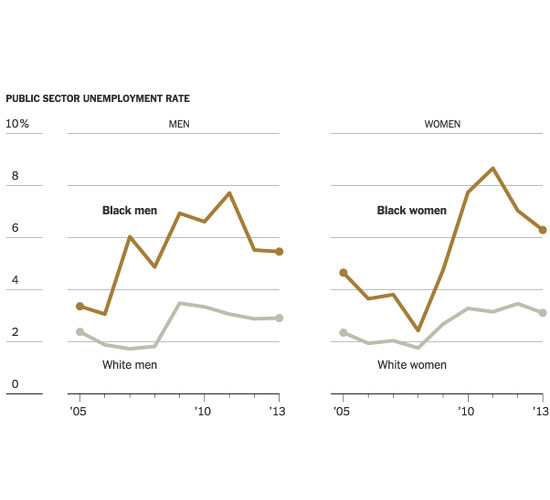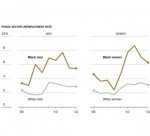
(Graphic via The New York Times.)
It looks the days of getting a “good government job” might be coming to an end. Since 2007, researchers have tracked a growing decline in the number of available public-sector jobs, due to several factors, including budget cuts brought on by shifts in the economy.
Public-sector jobs are the second leading employer for black women and 21.4% of working black women are employed in the public sector.
The rise of public sector jobs contributed to a burgeoning black middle class, which first began to flourish in the 1960’s. The regulated pay grades offered by such jobs were also a major boon, as they helped African American men and women to earn higher salaries despite a wage gap brought on by inequalities of both race and gender.
According to a recent New York Times article,
The recession was particularly hard on the black middle class, erasing three decades of economic gains. A new analysis of foreclosures between 2005 and 2009 by researchers at Cornell, for example, found that “mostly black and mostly Latino neighborhoods lost homes at rates approximately three times higher than white areas.”
Today, blacks are less likely than whites to own their own homes or have sizable retirement savings, two of the primary ways most families accumulate wealth. In 2013, the median white family had net assets of $142,000 compared with $11,000 for the median black family, according to the Pew Research Center. The difficulty in closing that gap is compounded by the fact that the median income for black households is just 60 percent of that of whites.
The Times piece also points out that the ongoing loss of public-sector jobs contributed to the rapidly growing rates of unemployment for black women in America. While most groups saw some rise in employment, black womens’ unemployment rates remained stagnant over the past year at about 10.4%.

